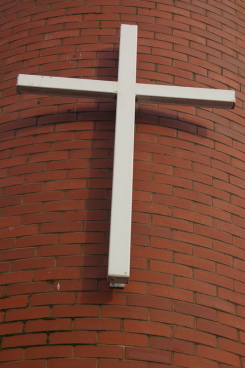
Mr Blair’s aim has been to win the confidence of Mr Paisley, a strident critic of the government’s concessions to Sinn Féin, who has become the dominant force in Northern Irish unionism in recent years.
Mr Paisley confirmed to the Guardian hat his discussions in recent years with the prime minister had gone well beyond politics. Asked whether he shared an interest in religion with the prime minister, the DUP leader said: “We shared books that I thought would be good for him to read and I’m sure he read them. He always takes books away with him.”
Downing Street refused to comment. However, Lord Bew, the professor of Irish politics at Queen’s University Belfast who has good connections at the highest levels of government, believes the Blair/Paisley dialogue on religion has transformed their relations – even though they come from significantly different religious traditions.
A fierce Protestant, Mr Paisley is the founder and moderator of the Free Presbyterian church, who has denounced the Pope as the anti-Christ. Mr Blair is an Anglican who attends mass with his Catholic wife.
“Blair is brilliant at seducing Paisley,” Lord Bew said. “This is the most amazing love affair, the last great Blairite romance. They are even exchanging books on religion. It is fantastic stuff. It is religious; it is romantic. It is brilliant. You have to hand it to him. Once again, when we thought the old maestro was fading, his capacity to seduce, politically speaking, is phenomenal.”
Peter Hain, the Northern Ireland secretary, joined the prime ministerial offensive by holding a special 80th birthday party for Mr Paisley at Hillsborough Castle last year. “It was a very pleasant, delightful occasion,” Mr Hain said of the evening which was dry, out of respect for Mr Paisley’s strict Free Presbyterianism.
The prime minister, whose former spokesman Alastair Campbell famously declared that “we don’t do God”, is deeply reluctant to talk about his Christianity in public. But it appears he decided to mix politics and religion with Mr Paisley some time after the 2005 general election when it became clear that the future of the peace process lay in the hands of the DUP.
© 2007 Ekklesia. Posted on Religioscope with permission. An initiative of the Anvil Trust, Ekklesia is a not-for-profit think-tank which works to promote theological ideas in the public square. Website: www.ekklesia.co.uk